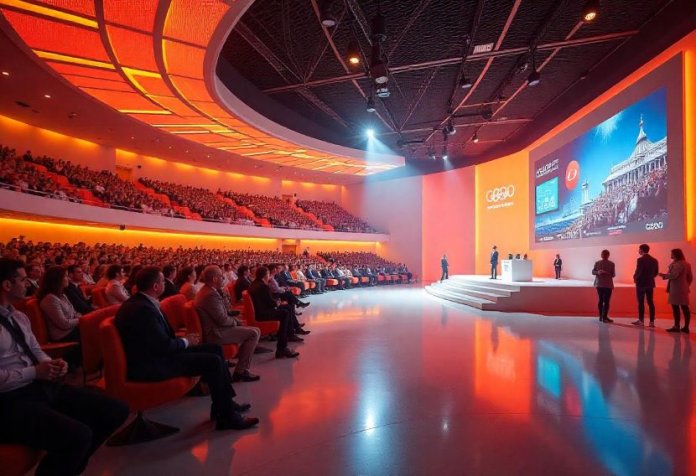In a major step toward enhancing Greece’s business tourism infrastructure, Athens is transforming its former Olympic Taekwondo Stadium into a cutting-edge MICE (Meetings, Incentives, Conferences, Exhibitions) venue. Originally built for the 2004 Summer Olympics, the stadium, also known as the Faliro Sports Pavilion Arena, will be repurposed as a modern conference and exhibition centre. This strategic move is expected to significantly boost Athens’ standing as a global destination for large-scale international events.
The redevelopment is being spearheaded by the Attica Region, which recently took over control of the stadium from Public Properties Co. The project aims to fill a long-standing infrastructure gap in the city, which has lacked a large, purpose-built venue capable of hosting high-capacity business events. The new venue is envisioned to accommodate conferences, exhibitions, and even concerts, providing a versatile and tech-enabled space aligned with international standards.
Located along the Athens Riviera, the stadium’s transformation is part of a broader urban and cultural revival of the coastal zone. The venue’s proximity to major developments such as the Stavros Niarchos Foundation Cultural Center, the Ellinikon smart city project, and the upcoming Aenaon Metropolitan Park further enhances its appeal. These integrated surroundings are expected to offer a vibrant ecosystem that blends business, leisure, tourism, and sustainability.
Stakeholders from across the tourism and hospitality sectors have hailed the project as timely and visionary. According to industry leaders, this redevelopment could attract year-round business travellers, helping stabilize hotel occupancy during off-peak seasons and generating broader economic benefits. Business travellers, who tend to spend more on average than leisure tourists, are seen as a key demographic for strengthening local services, from hotels and restaurants to transport and cultural attractions.
In addition to its business function, the revamped venue will also support Athens’ cultural calendar by hosting music and entertainment events. This dual-purpose approach not only maximizes utilization but also contributes to the city’s identity as a hub where culture and commerce intersect.
Sustainability is a cornerstone of the redevelopment plan. Planners are expected to incorporate energy-efficient systems, eco-friendly construction methods, and smart technologies to meet the growing global demand for green event spaces. This aligns with broader trends in the international MICE industry, where sustainability is becoming a key criterion for event organizers.
The Athens-Attica & Argosaronic Hotel Association, along with the Hellenic Association of Professional Congress Organizers (HAPCO & DES), have expressed strong support for the project. They believe the new centre will help elevate the quality of Greece’s tourism offerings and position Athens as a major MICE hub in Southeastern Europe. According to Evgenios Vassilikos, president of the hotel association, this development sends a strong message about the region’s ambition to compete on the global stage.
The project is also seen as a successful example of public-private collaboration. The concession agreement between the Attica Region and Public Properties Co. is expected to serve as a model for future redevelopment projects. The timeline for the stadium’s conversion is expected to span the next couple of years, with completion likely by 2026.
In conclusion, the transformation of the Olympic Taekwondo Stadium into a high-capacity MICE venue marks a significant leap forward for Athens. As the demand for international events grows across Europe, this development positions the city to not only meet but lead in offering world-class infrastructure for business and cultural gathering.













